Chapter Two: To Lose A Baby
I loved this chapter, it really gives some insight as to why losing a baby even when only a few weeks along can cause such heartache. I kept telling my husband I find myself just wanting to write the whole book down. I was talking with my Gram today about this book and she said, Why didn't you read this book 4 months ago? Honestly I don't know why but I am so glad I have read it. I honestly can say after reading this book I have felt such peace, which is wonderful because Sunday is my due date and I was thinking I would be struggling badly this week and even though I am sad, I really feel a sense of peace.
"The "miracle of birth" is a phrase that is tossed about lightly," it states, "parents are told that "women have babies every day," that pregnancy is nothing but a "normal" condition, and that there is "nothing to worry about.'" Somewhere in pregnancy there is a risk and often that risk can lead to some of the worst pain imaginable."
In the book Sherri talks about a women who some fifty years ago lost a baby through stillbirth and yet to this day wells up when talking about her baby's life. The women has nine living children, 41 grandchildren, and five great-grandchildren. The pain is still there. Losing a baby is a life changing experience just as giving birth to a healthy baby is.
The author talks about how fortunate we are today that health-care professionals are more sensitive to the loss of an infant. My Grandma some 50 years ago had a baby similar to my experience at 20 weeks. She was not allowed to hold her baby, see her baby, and to this day she does not even know if that baby was a boy or girl. I can't imagine how back then mothers and fathers were not given the choice. No longer are stillborn babies quickly taken from the mother following delivery. No longer are the choices regarding burial kept from the parents. Also, now parents are given permission to grieve and the tools to do so. I asked my Grammy if back then there were even books like this for her, she said no, there was nothing, she was expected to move on right away, after all, it wasn't a living baby.
"Through the use of these tools, parents are discovering that what seems unbearable pain today will eventually subside. Although these babies are never forgotten, time does heal."
One women states, "I used to find myself consumed with grief, and then one day I noticed that it had been an hour since I had though about the baby; and then another day I noticed an afternoon had passed without thinking of him. Before I knew it, hours turned into days, and I knew that I was learning to deal with my loss. Now I can concentrate on the simple beauty of life and the good that has come out of this experience."
The book talks about the different ways we loss a baby and how we as parents who've lost the baby feel and how society feels.
Miscarriage: A young women named Laura talks about how when she lost a baby through a miscarriage no one seemed concerned for her loss. In fact many doubted she was even pregnant at all. She said her husband picked her up from the Dr. after it happened, dropped her off at home, and went back to work. No one even considered she was hurting.
When a pregnancy is brief, the pain that can come from it is often dismissed. The lack of concern for a women who has a miscarriage can often leave her feeling hurtful, frustrated, and abnormal.
Ectopic Pregnancy: A women named June, a mother of three children talks about her experience with an ectopic pregnancy. She said they were so excited to be having a 2nd child. One day she had severe pains and was taken to the Dr only to realize that the baby had implanted in her fallopian tube. The only thing to do was surgery to save her life, and she found out the baby was a boy. She goes on to say she felt as though she had an abortion. To consent to a surgery that would kill her baby was the hardest thing to do. She knew she would have died if not, but she couldn't let go of the feeling that she had purposefully killed him.
I can't imagine having to make a decision like that, I almost had to make that decision but my body in the end did it for me. Still doesn't make it easier.
Ectopic pregnancies usually abort or rupture in the tube within the first 3 months because the baby cannot receive the nourishment to grow and expand.
Stillbirth: Jean talks about how she had many prior miscarriages, so when she got far into her pregnancy she thought she would be fine. But almost to full-term she went in for a routine checkup and there was no heartbeat. To this day they are not sure why their baby girl died, but she was grateful for the time she had to hold her, kiss her, and be with her. Jean said it was so hard to see such a perfect, beautiful baby girl, and wonder what happened.
There are many unknown causes for stillbirths, many are often referred to as "cord accidents." Other causes are defect in the cord, the membranes, or problems with the placenta like my experience with Harrison.
Infant Death: A young mother Michelle went into premature labor at 6 months, but was put on bed rest and was able to carry almost full-term. She delivered a healthy baby girl. A few hours after their baby girl was born she was diagnosed with Group-B strep, she died three days later.
There are many causes of infant deaths, most commonly is the result from premature labor. Many parents spend weeks and months in the hospital only to see there baby die. There are other reasons such as congenital anomalies, heart defects, many parents are aware of these problems prior to birth however many come after birth.
Sherri says, "The loss of a baby at any stage of development yields an unusual sort of grief because, for the most part, society refuses to acknowledge the pain that comes from a failed pregnancy." Mostly due to the fact that the women was only pregnant a short while and the baby was never seen or held, or because the parents didn't' really have enough time to truly "know" the baby, therefore the loss is dismissed. Sherri says, "Few people understand that the fact that the parents never have an opportunity to know the child is the tragedy."
This part just jumped out at me: Sherri goes on to say, "It is cruel to assume that if the child has not breathed outside the womb, then the loss is insignificant. Similarly, to judge the gravity of the loss by weeks of gestation is unfair. However, the fact remains that while parents who lose a newborn are given some time to grieve, parents who have a stillborn baby are given less time to grieve, and parents who lose a baby through miscarriage or ectopic pregnancy are given very little time if any to recover emotionally." This part touched me so much. Because that is how I feel. Harrison did not take a breath but it doesn't take away the fact that he was a baby and was alive in the womb.
I could go on and on forever about this chapter. This is the one that really helped me. I felt the same way as many of the women in this book, talking about how, "Rather than accepting any loss as valid and genuine, society tends to take a person's loss and minimize it by comparing it to other tragedies."
Every parent as with every person grieves differently. Some parents may grieve deeply for long periods of time, while others may be able to recover quickly. Either is just fine and completely normal. Some people still ask, "But why do some women find the loss of a baby to be so traumatic in the first place?"
Jane Forsyth a therapist who also had a miscarriage states, "A miscarriage is perhaps the only phenomenon in which an individual experiences the death of another literally inside of her. To be closely attached to life and then to death brings a women's own mortality to consciousness, increasing her sense of vulnerability and forcing her to confront issues of control, depression, guilt, fear and anger. This can also be applied to ectopic pregnancy, stillbirth, and infant death."
I never though of this but Sherri says that when a women becomes pregnant she redirects her life completely. You bond almost instantly, trying to take care of that baby. So when a women bond with and prepares for the baby but returns home from the hospital with empty arms it is devastating.
And lastly I love this statement Sherri says, "Babies symbolize life, innocence, and unconditional love. To associate a baby with death goes completely against all expectations. Babies, the beginning of life, should not enter the world at what is seemingly the end. While preparing to give life, no one prepares to say goodbye."
I think I've had many people wonder if I was depressed or ok? All I have to say is that after reading this book I know I am ok. I know that it is ok to grieve, to miss my son Harry. I know that these feelings are normal, that grieving over Harry is healthy. I hope many of you out there have found comfort from this book as well.
Subscribe to:
Post Comments (Atom)
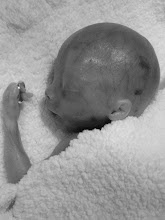

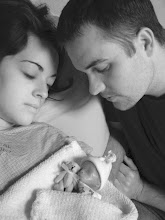



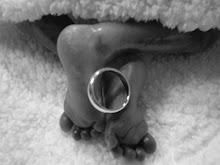




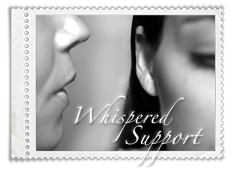
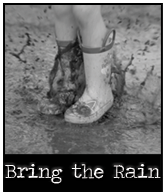




Wow! I relate to so much of what you wrote. With miscarriages and then losing Micah it is all very similar. Having a baby is such a miracle, as you wrote, and many people don't fully grasp that until something does go wrong. I will never take any moment of pregnancy for granted again.
ReplyDeleteI can't wait to read this book.
Love ya!
April of course we know I haven't lost a baby but I feel somewhat close to this. When you took me to the ER I remember waiting to find out that I had lost Boen I remember bawling my eyes out and thinking how can this be??? For some reason he made it, after a horrible pregnancy of bleeding and then a bad kidney with low function, thinking he'd have down syndrome if he'd even make it and then telling me I needed to deliver at 32 wks. It all turned out and I don't know why but I am thankful everyday it did! With all of those experiences I understand to a tiny extent what you are feeling and what she describes in this chapter! Love you guys! I am glad you found something that will help you get through this hard time! PS I love love love that picture of your whole family, I've never seen it until today! Cherish it!!!
ReplyDeleteI need to get this book. I do so love that you are sharing it with us all though!
ReplyDelete*hugs*